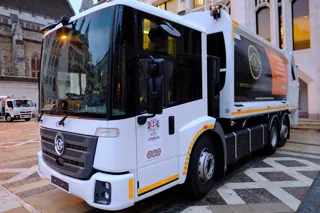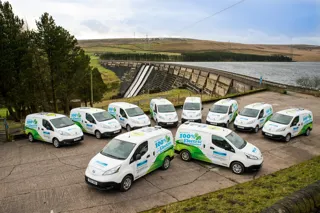Venson Automotive Solutions is urging van operators to consider adopting electric vehicles, saying that fears over a lack of charging points is misplaced.
A record 120,000 alternatively fuelled cars were registered in the UK last year, and Venson says this trend is set to continue as the Government rally’s local councils across the UK to make the most of the £4.5 million funding available through its On-street Residential Chargepoint Scheme.
The Workplace Charging Scheme (WCS), a voucher-based grant, offers fleet managers support towards the up-front costs of buying and installing electric vehicle charge points.
For eligible businesses, charities and public sector organisation, a grant of £300 for each socket, up to a maximum of 20 across all sites is available.
In addition, fleet managers could consider subsidising employees for the installation of charging points at their domestic property, through the Electric Vehicle Homecharge Scheme.
This provides grant funding for up to 75% towards the cost of installing electric vehicle charge points at domestic properties across the UK, capped at £500 – Venson says this is ideal for businesses operating a small van fleet whereby drivers have private use of a vehicle out of working hours.
Gil Kelly, operations director of Venson Automotive Solutions, said: “Crucially, the available funding makes charging a plug-in van at home or work no different to charging a mobile phone, ensuring they make their next journey with a ‘full tank’.
“Charging at home costs around £3 for a full charge or 2p per mile. Many businesses offer staff workplace charging points, with either free access all day or a time-based tariff to encourage sharing.
"When it comes to charging on the go, rapid-charge stations are available at service stations, retail outlets and other public facilities. They typically cost £6.50 for a 30-minute charge, taking a battery from flat to 80%.
“The Government continues to invest in the UK’s network of charging points at retail shopping car parks, railway stations and other key locations.
"In addition, Highways England is supporting the uptake of electric vehicles by working to ensure that 95% of the major road network it manages will have a rapid chargepoint every 20 miles, where possible.
"Furthermore, fuel companies such as Shell and Total have pledged to put charging points on their forecourts, so the future looks bright for motorists driving electric cars and vans for work or at home.”



















Login to comment
Comments
No comments have been made yet.